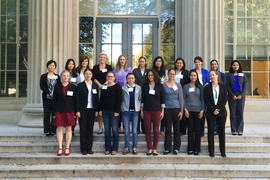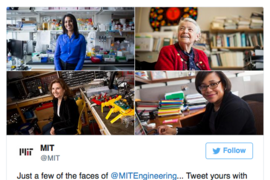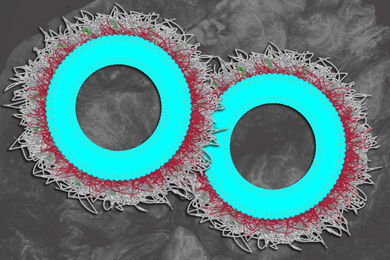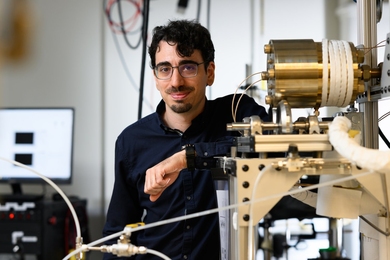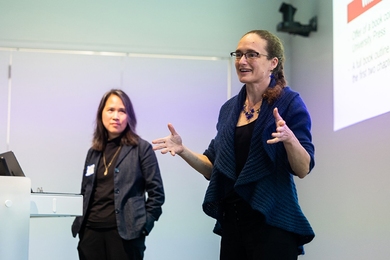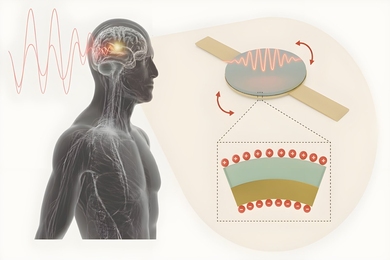Success in higher education, especially for women in computer science and electrical engineering, takes a network. And while some connections are only a text message or tweet away, the personal touch still matters, and it works differently.
For graduate students like Judy Hoffman, who studies adaptive learning algorithms at the University of California at Berkeley, there is no substitute for actually meeting fellow female engineers and computer scientists in person. To make this happen, the Department of Electrical Engineering and Computer Science (EECS) hosts “Rising Stars in EECS,” a three-day workshop for graduate students and postdocs who are considering careers in academic research.
“Rising Stars helped me connect with current and future leaders in our field, all within a very supportive environment,” says Hoffman, one of 61 attendees who came to campus this year. “I have a good sense of where I want to go with my research,” she adds, but “the workshop provided me with the insights I needed to successfully navigate the process.”
Network effect
Created in 2012 by EECS head Anantha Chandrakasan, Rising Stars has nearly doubled in size since its inception. More than just a meet-up, Rising Stars offers women in EECS the opportunity to learn by doing, with sessions focused on landing a faculty job, gaining tenure, and building a professional support network.
Participants and speakers candidly discussed how to tackle common issues such as dual-career hiring (when an applicant’s spouse is also seeking a job in academia), work-life balance, and family leave policies. Attendees also presented their research at a poster session and gave talks about their research (Hoffman presented her work on the performance of deep visual models). All sessions are designed to help demystify what many young female faculty describe as the “black box” of academic hiring and the tenure process.
“We hope to give them the information they need to be successful as they explore job opportunities,” says Chandrakasan, the Vannevar Bush Professor of Electrical Engineering and Computer Science. “But we also feel very strongly about giving participants a chance to get to know each other and make lasting connections. These connections can open doors for collaborations and provide professional support for years to come.”
While MIT and other institutions have had success in attracting an increasing number of female students to EECS — 43 percent of sophomores studying EECS at MIT are women — the journey can still be a lonely one. Many of the participants at Rising Stars shared a common experience: being one of only a handful of women at their home lab.
Precious Cantú, a Fulbright Postdoctoral Fellow at the Swiss Federal Institute of Technology in Lausanne, says, “It was amazing to see such a large group of women in one room, but once we got into the talks and presentations, we were all just scientists and engineers together in a room doing fantastic science.”
“It’s great to listen to so many presentations. It has really motivated me to work even harder,” adds Kun (Linda) Li, a graduate student at the University of California at Berkeley.
Professional launching pad
In her remarks at Rising Stars’ opening reception on Nov. 8, MIT Chancellor Cynthia Barnhart spoke about the rewards of a career in academia, such as the freedom to stretch and grow across disciplines, the opportunity to conduct original research, and the chance to mentor and inspire other students, including women.
“This workshop is designed to be a professional launching pad,” said Barnhart, who is also the Ford Professor of Engineering. Barnhart encouraged the women to speak with MIT faculty present at the workshop about their experiences in academia.
Institute Professor Mildred Dresselhaus, who delivered the workshop’s keynote, spoke of her own circuitous journey in science and engineering. The first female tenured professor in engineering at MIT, Dresselhaus arrived in campus in 1960 and is widely regarded as the “queen of carbon” for her pioneering work in nanoelectronics.
Dresselhaus shared insights from many stages of her life — from her time as student at Hunter College, where she was studying to become a teacher, to her time studying physics with Nobel Laureate Enrico Fermi at the University of Chicago, to her early tenure at MIT. Her primary message was persistence. While studying with Fermi, she said, three-quarters of the students in her program failed to pass rigorous exam requirements. “It was what you did that counted, and that followed me through life.”
Rising Stars also featured a presentation by Michael Stonebraker, a Turing Award winner and adjunct professor of computer science at MIT who led a session on how to start a company. Paula Long, CEO and cofounder of Boston-based DataGravity, offered lessons on leadership and management — skills that are equally relevant whether you’re running a lab or a company.
Charles Leiserson, the Edwin Silbey Webster Professor of Computer Science and Engineering, led a session on developing a research statement. John Guttag, the Dugald C. Jackson Professor of Computer Science and Engineering, led a session on how to give a job talk and get a faculty job. Katherine Yelick, a professor of electrical engineering and computer sciences at the University of California at Berkeley, led a session on the faculty search process.
“This workshop complemented my prior experiences in academia well, so that when the hiring music plays, I'll know the steps!” said Elena Glassman, a graduate student in EECS at MIT. “I feel far less intimidated now, because I'm armed with more knowledge — and professors I can reach out to again with questions in the future as they inevitably arise.”
Additional participants of Rising Stars in EECS came from Caltech, Carnegie Mellon University, Columbia University, University of Illinois at Urbana-Champaign, Georgia Institute of Technology, Imperial College of London, International University of Rabat, Pennsylvania State University, Princeton University, Privacy Analytics Inc., Purdue University, Stanford University, University of California at Santa Barbara, University of California at Los Angeles, University of California at San Diego, University of Science and Technology of China, University of Southern California, University of Toronto, University of Washington, and Yale University.






